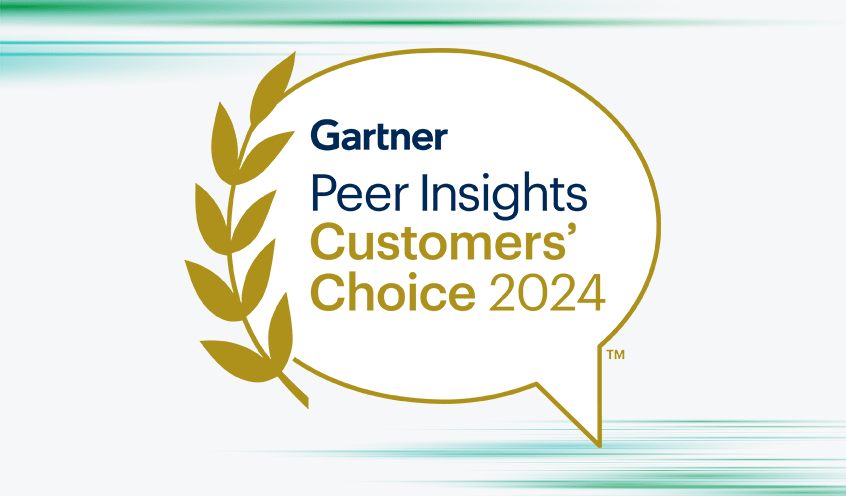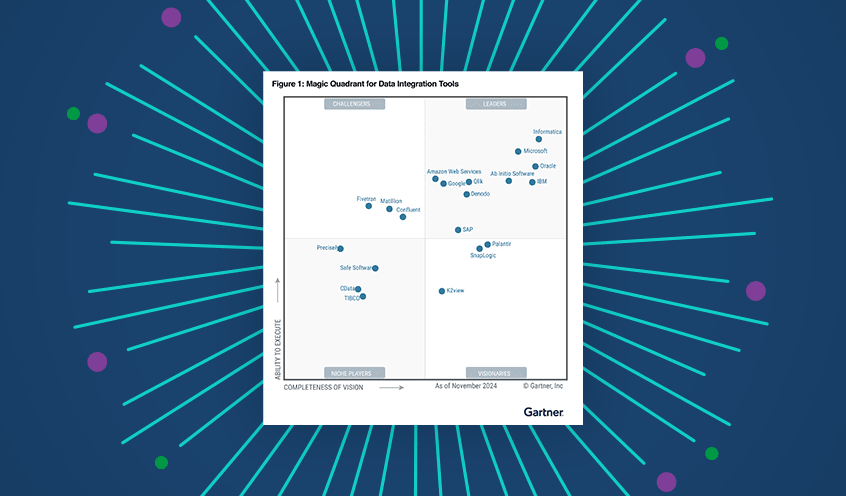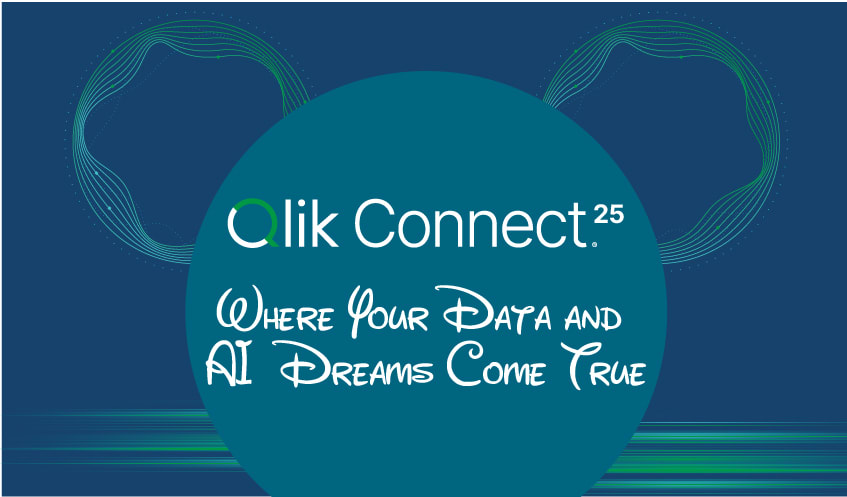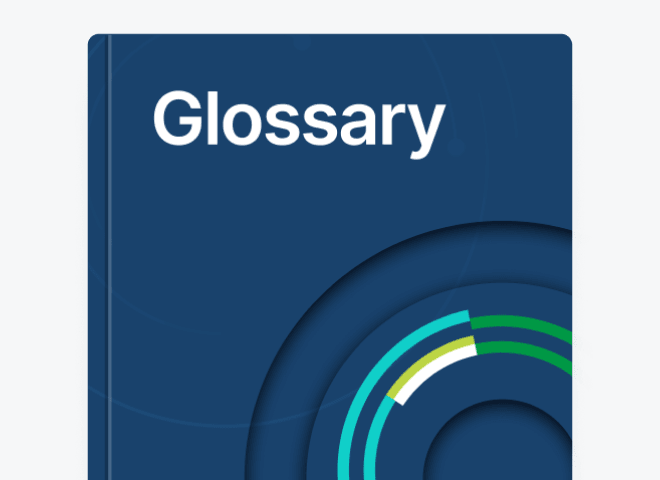It’s that time of the year where I get to reflect on the last 12 months and the fascinating world of data and AI we live in. And if 2023 was a year of massive hype with generative AI, I think 2024 will be remembered as the year reality started setting in.
And that’s a very good thing. Indeed, I have seen too many top-down AI initiatives fail when organizations rush to do AI for the sake of AI. Companies are now starting to collectively ask the right questions. Is AI the solution for our use case, and if so what form of AI? How do we get real value in a reasonable amount of time, and without breaking the bank? How do we make sure we leverage all the right data to deliver outcomes we can trust? How do we do pursue our AI initiative safely, sustainably and ethically?
This year started to put companies on the right path…
The year that delivered fast and affordable AI value
For Qlik, the year began with a technology acquisition and an ambitious goal: in the matter of months, develop and launch a new AI solution that would enable organizations to get actionable insights from their unstructured data - which represents the vast majority of their data assets, and is largely untapped. And as importantly, we wanted to put a solution in the hands of our customers that they could deploy in a way that was fast and affordable, allowing them to create value with AI quickly.
By summer, we had released Qlik Answers, a plug-and-play, generative AI-powered knowledge assistant that delivers fast, personalized answers in real-time. Fast forward to now, and it is truly rewarding to see how our customers have embraced it. But don’t take my word for it, check out what some of them have to say in this new video:
As this year saw a shift in focus from large language models, which necessitate significant investments, to smaller models that are more cost efficient, easier and faster to build and deploy, we think Qlik Answers came at the perfect time.
The year the market caught up to the data imperative
Having spent the majority of my career in data and analytics, I have been advocating early and often that organizations need to run their business on a trusted data foundation. I think it’s safe to say that generative AI finally made that cool – and more importantly, a priority for organizations.
We’re proud to have helped make that a reality over the years for thousands of companies through our portfolio of data integration and quality solutions. This year, following our acquisition of Talend in 2023, we introduced Qlik Talend Cloud. This new flagship offering combines the best functionality of Qlik Cloud Data Integration, Talend Cloud, and Stitch Data, and is designed to help our customers implement a trusted data foundation for AI. It offers a unified package of data integration and quality capabilities that enable data engineers and scientists to deploy AI-augmented data pipelines that deliver trusted data wherever it’s needed. With Qlik Talend Cloud, users can assess the trustworthiness of their data leveraging a Trust Score, as well as create data products - highly trusted, reusable, and consumable data assets.
A trusted data foundation isn’t just a necessity to find success with AI, it can create a true market advantage for companies that know how to best leverage it. As we look forward to the future, I think this assessment from PwC provides a great new reality check: “As GenAI becomes a commodity product — with everyone using similar models from the same few vendors — it’s your data and specialty knowledge that will set you apart.”
The year AI had to start following the rules
The rise of generative AI was so rapid that it initially outpaced regulatory efforts, creating a “Wild West” landscape where liberties were sometimes taken, and ethical standards compromised. But we knew that could not – and should not – last. Enter the era of responsible AI: on March 13, the European Union voted to approve the AI Act, establishing the world's first comprehensive set of regulatory rules for AI. As the year went on, several other countries and regions introduced AI-related laws and regulations, or announced they are developing them.
When I counsel organizations on their AI strategy, one of the first things I ask is whether they have established an AI policy. It is a critical step to ensure compliance with new legal regulations and ethical standards, and to mitigate risks of associated penalties and reputational damage. It’s something we have done ourselves at Qlik: we have a policy which sets out the parameters for use of AI at Qlik and applies to all employees and contractors. The rules we have put in place are designed to balance the benefits of using generative AI with the protection of Qlik’s confidential information, customer expectations and intellectual property - while complying with all applicable laws, regulations, and ethical standards. We have also created a set of principles guiding the responsible development and deployment of our technology, which we released publicly this year at qlik.com/Trust/AI.
The year the agnostic ecosystem got the edge
Turning AI into reality requires scalable and flexible platforms that can handle massive volumes of structured and unstructured data in real time, and so the notion of a “lakehouse” really started to take hold this year as an evolution of cloud data warehouses. As I see it, one of the great benefits of cloud data warehouses and now lakehouses is that they enable organizations to adopt and integrate various technologies more easily, fostering a flexible and agnostic approach to their technology ecosystems that can set their business apart.
That philosophy guides our product strategy at Qlik: our ability to offer an open and agnostic platform that allows seamless integration with a wide range of cloud services and data environments, providing users with maximum flexibility and choice. We can unlock data regardless of how it’s structured, move that data to wherever you want, shape that data in whatever file format or structure you want, leverage new emerging open table formats like Apache Iceberg and Delta Lake, and create data products for consumption.
This year we signed an AWS Strategic Collaboration Agreement, significantly expanding our decade-old partnership. This new strategic collaboration benefits over 7,000 customers by enhancing their ability to utilize AI and data integration solutions, streamline compliance, and improve the value derived from SAP data through seamless integration with AWS technologies. In addition, Qlik and Snowflake deepened their partnership this year, enriching our capabilities by leveraging Cortex AI functions, including vectoring, embedding, and completions within the RAG architecture.
The year that is ending with another hype
Ready for more hype? Agentic AI has already been touted as “the next frontier of generative AI”, and for good reason. While generative AI produces newly synthesized content based on training from existing data, agentic AI systems will be able to not just deliver knowledge but make decisions and plan actions. It will be transformative in ways we are only beginning to imagine.
Where will that leave us humans? And how can organizations adapt and not get left behind? You can expect we will dive deep into this when we unveil our new annual trends on January 15 – so be sure to save the date and register now!
And as we continue to pioneer new ways to bring action to data, I am excited to say that Qlik has some great innovations up our sleeve that you will be able to see at Qlik Connect in May in Orlando… You can register now to save your spot and benefit from preferred pricing. I hope to see you there!
Until then, my advice to organizations as we enter 2025 will be the same advice I shared when we rode the initial hype cycle on generative AI: keep it real by focusing on the ways you can make AI deliver value today. This year we decided to share our own story of how Qlik has made AI real for our customers and for ourselves in a public document I hope you will check out. We look forward to continuing to partner with you on this journey in 2025.
You Might Also Be Interested in

Celebrating Customer Voices: Qlik Named a Gartner Customers’ Choice for Analytics and BI


Unlocking Data’s Hidden Treasures


Don’t Be a Spectator – Become a Qlik Luminary or Partner Ambassador! Applications Now Open!




















































